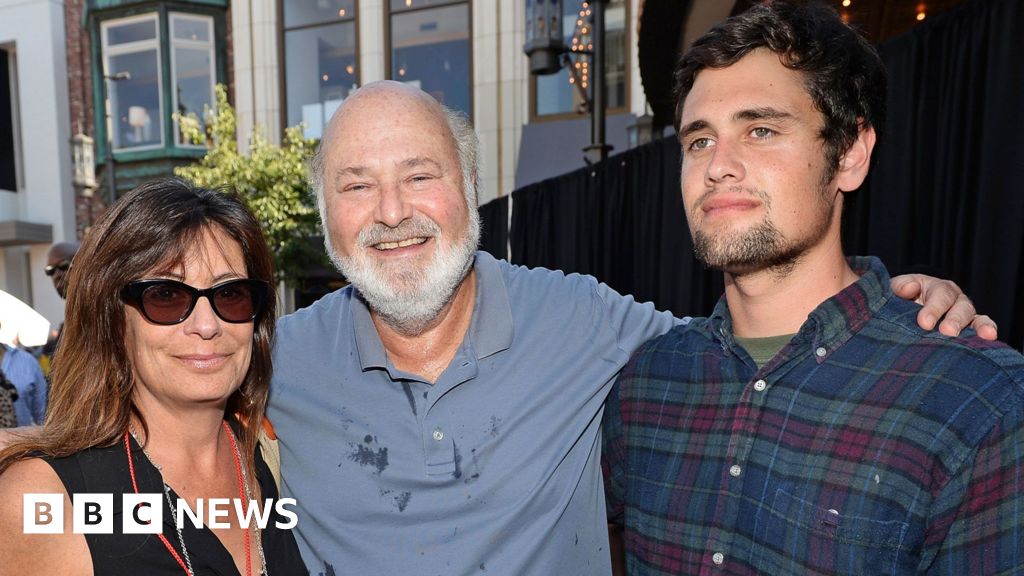You’d think that at 79, Sylvester Stallone may be ready to call it quits. But bring up retirement with the actor, and it’s clear there’s still plenty of fight left in him.
“Forget it,” he tells Yahoo. “Because I don't know the concept of retiring. I thought I did. Wouldn’t it be great to mow your lawn every day and chase bees off the roses or whatever you do? And I go, 'No.' I'm just not— I'm built for war. You know what I mean? Creative war.”
Nearly an octogenarian, Stallone is still notching career milestones, including on Tulsa King, which is his first-ever leading role in a scripted TV series. Now entering its third season on Sunday, the hit show blends mob drama with offbeat humor and gives Stallone a chance to showcase his signature blend of grit and charm. But for the actor, it’s the role’s unexpected vulnerability that keeps him coming back.
Stallone, reimagined
In Tulsa King, part of Taylor Sheridan’s sprawling slate on Paramount+, Stallone plays Dwight “The General” Manfredi, a New York mob capo who, after spending 25 years in prison, is unceremoniously sent to Tulsa, Oklahoma, to establish new territory for the family.
“The series has been very inventive,” he says. “I said, look, these other gangster [stories] — [The] Sopranos, Goodfellas — they’ve done it perfectly. But no one has really had this dark humor, this oddball kind of twist, but also a guy who can be pathological when he has to.”
Dwight is old-school and unpredictable. He’s a man capable of violence, yet driven by loyalty. He’s rebuilding his empire while trying to reconnect with a daughter who barely knows him. And perhaps most interesting of all, he’s a character Stallone says is the closest version of himself he’s ever played.
“Truthfully, it's who I am,” he says, explaining he wanted to “experiment” with this series. “Why don’t I just pretend I woke up one morning and I'm not an actor, I'm not a writer — I’m now a full-blooded gangster. You still have your personality, but you're a gangster. You don’t write screenplays. You blow people away if necessary, that’s it.”
Stallone, being Stallone, brings levity even to the darkest corners of Dwight’s world.
“I'm always fooling around. It’s very hard for me to be serious [for] more than ten minutes,” he says. “That’s why I was thrown out of 12 schools in 13 years. I’m like the village dunce. But finally, it paid off.”
It’s in the emotional moments, particularly when Dwight taps into his softer side as father or grandfather, where Tulsa King really lands. “Oh, God, yeah,” Stallone says, when I ask if those scenes hit differently as a father in real life. “Because that's when the audience relates. They say, ‘Ah, I got that going on right on the couch next to me. I understand that problem. I understand that sense of joy.’”
The family thread is more than just acting for Stallone.
Sistine Stallone, Jennifer Flavin Stallone, Sylvester Stallone, Sophia Stallone and Scarlet Rose Stallone attend amfAR Las Vegas at Wynn Las Vegas on November 22, 2024 in Las Vegas, Nevada. (Photo: David Becker/Getty Images)
“I pay very, very close attention to my family now — my wife [especially],” he says. Stallone and wife Jennifer Flavin have been together more than 30 years, despite a brief hiatus in 2022. They share daughters Sophia, 29, Sistine, 27 and Scarlet, 23. “So when [our family’s] working together, it’s a kind of a very happy, generative emotion, because you’re with your people…It just energizes the hell out of me.”
What mentors?
That sense of presence — of valuing who and what’s in front of him — is something he’s also tried to pass along to the Tulsa King cast, many of whom have called him a mentor. It’s a title he wears proudly, especially since no one filled that role for him when he was starting out.
“Who were my mentors? Nobody,” he says bluntly. “Nobody wanted to talk to me. I had no mentors. I was just the guy in the audience. I was like a professional extra.”
What he lacked in guidance then, he makes up for in wisdom now.
“I tell the younger cast: ‘Be prepared,’ like the Boy Scout motto. Learn your lines — and then throw them away,” he says. “I use what I call the single arrow syndrome. When you’re younger, you’re like, ‘Oh, I got the job, I’m on the phone, I gotta buy some shoes…’ And then when it’s time to act, you’re not focused. So you miss it. Arrow two — you miss it again. Now you’re on arrow six and you’re starting to lose confidence.”
The point is to act like you only have one shot.
“If you went hunting and you were starving, and you had one arrow — do you realize how strong your concentration would be not to miss?” he explains. “Well, that’s the way you gotta approach your career. One arrow. One shot. One target. That’s it.”
Nothing is over!
His own career has followed that advice in spirit, if not always in ease. For every high — Rocky, Rambo, The Expendables — there were lows, too.
“There was a time when the phone didn’t ring for seven years,” he says. “But then you battle back up. I take that as the circadian rhythm of life. People have to be able to weather those horrible valleys.”
Sylvester Stallone on retirement. (Quote: Photo illustration: Liliana Penagos for Yahoo News; photo: Todd Owyoung/NBC via Getty Images)
Stallone may not have had mentors to help him through it, but he had idols. His childhood obsessions — Hercules, The 7th Voyage of Sinbad, Jason and the Argonauts — weren’t necessarily cinematic masterpieces, but they struck a chord.
“When I played Rambo, I didn’t want to play Rambo,” he admits. “I fell into it with First Blood. Then I realized, these are the modern mythologies.”
Stallone says he didn’t set out to become an action star, but eventually realized that roles like Rambo — and the larger-than-life characters played by counterparts Arnold Schwarzenegger and Jean-Claude Van Damme — were more than just muscle-bound heroes. These types of films carried the same moral weight as the ancient legends he idolized: heroic figures facing off against darkness.
For Stallone, those stories are what keep him coming back. Because if you're the one still telling them, how could you walk away?
This brings us back to retirement. When I ask if there's any part of him that wants to sit back and enjoy the fruits of his hard-earned Hollywood labor in Palm Beach, Fla., Stallone says no. He believes fiction, especially the kind that unfolds on a soundstage, can sometimes feel more honest than the real world.
“I love the unreality of the set. Reality is overrated, OK?” he says. “You deal with that as soon as you walk out your door. But to be on a set where you are part of this fake reality — it’s wonderful, because you control the environment.”
Asked what he hopes his legacy will be when the day does come to slow down, Stallone thinks for a beat, then smiles.
“That he broke some new ground — and some ground broke him,” he says. “But the fact is, I feel like I’ve battled back to career highs and really lows. That’s my legacy: he got hit a lot, but he never went down permanently.”

 Movie
Movie 2 months ago
580
2 months ago
580 




![Presidents Day Weekend Car Sales [2021 Edition] Presidents Day Weekend Car Sales [2021 Edition]](https://www.findthebestcarprice.com/wp-content/uploads/Presidents-Day-Weekend-car-sales.jpg)




 English (United States)
English (United States)